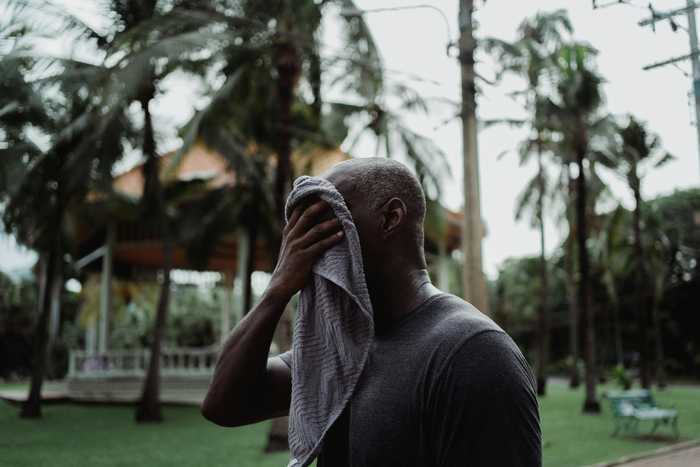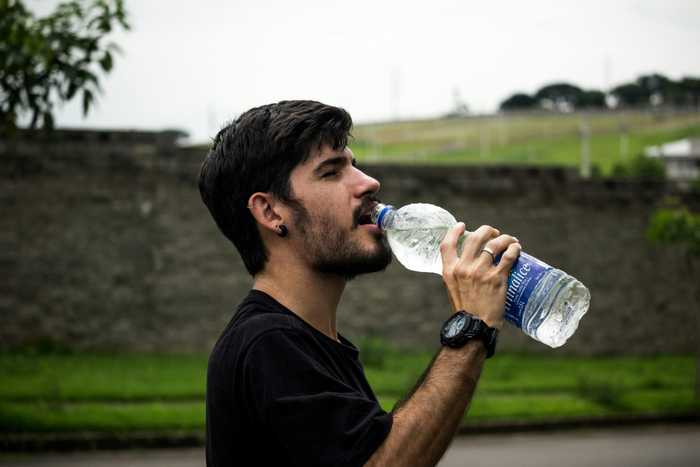Published 09:55 IST, May 20th 2024
Heatwave 2024: Beware Of These Heat-Related Health Issues In Summer
Heatwaves pose significant health risks, but with proper precautions, many heat-related illnesses can be prevented.
- Health News
- 3 min read
As global temperatures rise and heatwaves become more frequent, understanding the health risks associated with extreme heat is crucial. Heatwaves can lead to several serious health issues, particularly affecting the most vulnerable populations such as the elderly, children, and those with preexisting health conditions. Here are some heat-related health issues to be aware of during a heatwave.
Heat exhaustion
Heat exhaustion is a condition that occurs when the body overheats. It can develop after prolonged exposure to high temperatures and inadequate fluid intake. Symptoms of heat exhaustion include heavy sweating, weakness, dizziness, nausea, headache, and muscle cramps. If not addressed promptly, heat exhaustion can progress to heatstroke, a much more severe condition. To prevent heat exhaustion, stay hydrated, wear light clothing, and avoid strenuous activities during peak heat hours.

Heatstroke
Heatstroke is the most severe heat-related illness and can be life-threatening. It occurs when the body’s temperature regulation system fails, causing the body temperature to rise rapidly, sometimes up to 40°C or higher. Symptoms of heatstroke include hot, dry skin or heavy sweating, confusion, seizures, loss of consciousness, and rapid, shallow breathing. Heatstroke requires immediate medical attention, as it can cause damage to the brain, heart, kidneys, and muscles. To prevent heatstroke, keep cool indoors, use fans or air conditioning, and monitor the elderly and children closely.
Heat cramps
Heat cramps are painful muscle spasms that occur as a result of intense exercise in hot weather. They are often caused by an imbalance of electrolytes due to excessive sweating. Commonly affected muscles include those in the abdomen, arms, and legs. To prevent heat cramps, ensure adequate hydration and consider drinking electrolyte-replenishing beverages if you are engaging in strenuous physical activity.
Dehydration
Dehydration occurs when the body loses more fluids than it takes in, which can happen quickly during a heatwave. Symptoms of dehydration include thirst, dry mouth, dark urine, fatigue, dizziness, and confusion. Severe dehydration can lead to heat exhaustion and heatstroke. To prevent dehydration, drink plenty of water throughout the day, even if you do not feel thirsty, and avoid beverages that can cause further dehydration, such as alcohol and caffeinated drinks.

Heat rash
Heat rash, also known as prickly heat, is a skin irritation caused by excessive sweating during hot and humid weather. It appears as red clusters of small blisters that can cause itching or a prickly sensation. Heat rash is common in young children but can affect adults as well. To prevent heat rash, wear loose, breathable clothing and keep the skin cool and dry.
Sunburn
Sunburn is a form of skin damage caused by excessive exposure to ultraviolet (UV) rays from the sun. Symptoms include red, painful skin that may blister and peel. Severe sunburn can increase the risk of skin cancer. To prevent sunburn, apply a broad-spectrum sunscreen with an SPF of at least 30, wear protective clothing, and avoid direct sunlight during peak UV hours.
Updated 12:10 IST, May 31st 2024